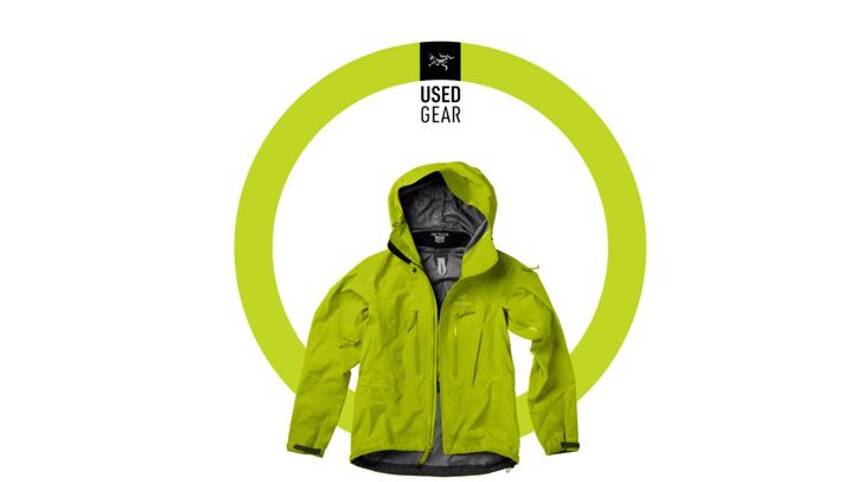Register for free and continue reading
Join our growing army of changemakers and get unlimited access to our premium content

Image: Arc'teryx
Called ‘Rebird’, the initiative includes a used gear resale service that has been made available through all 80+ of the brand’s owned stores across the US and Canada.
Once items are traded in, they are inspected, cleaned and repaired before being put on display in-store fore resale. Resold products will be discounted against usual RRPs, and the person who traded in the items are rewarded with a gift card.
Selected stores in Chicago and New York will host used gear pop-ups this summer to bring attention to the new offering. This expansion follows trials in 2019.
In tandem to this offering, called ‘Used Gear’, Arc’teryx is debuting a range of jackets made from upcycled materials. The ‘Stowe Windshell’ jackets are made from end-of-the-roll materials reclaimed from the production process. Also launching are tote bags and pouches made from post-consumer waste.
The announcements build on an existing ‘Care and Repair’ service from the brand. The service includes support and free repairs for products under warranty, additional paid-for repair services and a series of digital resources providing advice on product care.
“At Arc’teryx we have always built products that last, and durability is crucial to how we see ourselves contributing to a more circular economy and achieving our global climate goals,” the brand’s senior manager for social and environmental sustainability Katie Wilson said.
“It enables us to do fun work like make new product from old, resell used gear, and repair. While some of this work has been happening as long as we’ve been in existence, some of it is brand new.”
Other retailers to have announced take-back and/or repair schemes in recent months include Ikea, VivoBarefoot and Selfridges.
Circular economy ‘hub’
In related news, a new circular economy hub, dubbed the UK’s first, is opening at the University of Exeter this week.
The aim of the new National Interdisciplinary Circular Economy Hub at the University of Exeter is to coordinate work and enable knowledge-sharing between a network of five circular economy R&D centres across England. All centres are being funded through UK Research and Innovation (UKRI) , in a bid to help the UK deliver against its nature and climate goals, as well as the Resources and Waste Strategy.
Sectors set to be included in research by the centres include construction, chemicals, metals and textiles. In the longer term, the hub will contribute to a detailed roadmap to a fully circular, net-zero compatible UK economy.
The launch of the hub is being marked by a week of virtual events, co-hosted by the University, UKRI and the Department for Food, the Environment and Rural Affairs (Defra).
Professor Fiona Charnley, who holds a PhD in Whole System Design, and Professor Peter Hopkinson, who established the world’s first MBA in the Circular Economy, have been selected to co-direct the new centre.
“The UK economy consumes over one billion tonnes of materials every year, or around 17 tonnes per person, contributing to carbon emissions, a huge amount of unnecessary waste and environmental damage,” Professor Hopkinson said.
“This is set to continue to grow unless we take radical action to shift the current linear economy towards a circular economy. This programme will show how this can be done at speed and scale.”
Sarah George


Please login or Register to leave a comment.